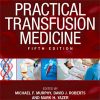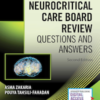Severe Listeriosis in the ICU: Critical Insights from a Multicenter Study
link.springer.comA retrospective multicenter study across 23 French hospitals over 10 years analyzed critically ill ICU patients with culture-confirmed “Listeria monocytogenes” infections. The study aimed to describe patient characteristics, clinical course, treatments, and outcomes, particularly focusing on factors associated with mortality.
The study included 110 patients, with a median age of 68 years; 61% were male, and 71% were immunocompromised. The most frequent presentation was neurological involvement. Reflecting the severity of illness, 58% required invasive mechanical ventilation and 44% needed vasopressor support.
Outcomes were poor, with ICU mortality at 25% and in-hospital mortality at 32%. In patients with neurolisteriosis, factors independently associated with increased mortality included lower Glasgow Coma Scale scores at admission and higher cerebrospinal fluid protein levels.
Steroid use did not show a statistically significant association with reduced mortality in this group.
The study concludes that listeriosis requiring ICU admission is a severe condition with high morbidity and mortality, predominantly affecting older and immunocompromised individuals and frequently necessitating significant organ support.
It highlights the poor prognosis associated with neurological complications and identifies initial neurological status and CSF protein levels as mortality predictors in neurolisteriosis.
Further research is suggested to evaluate the potential role of steroids in treating neurolisteriosis.

















